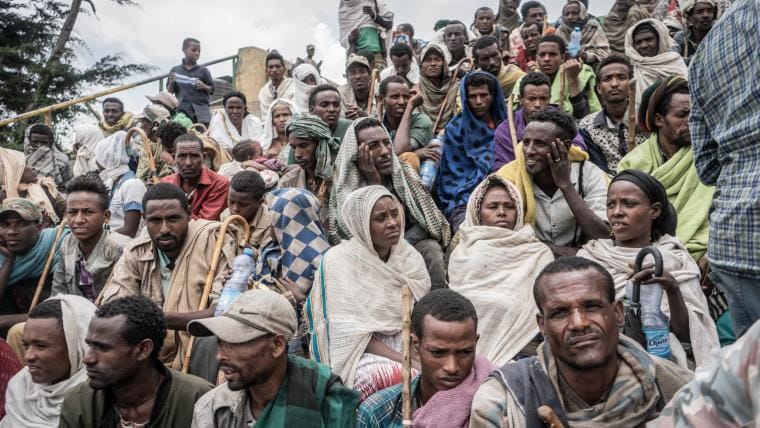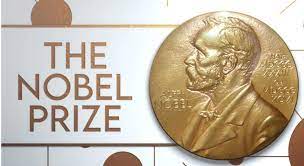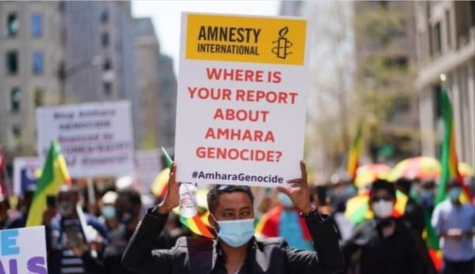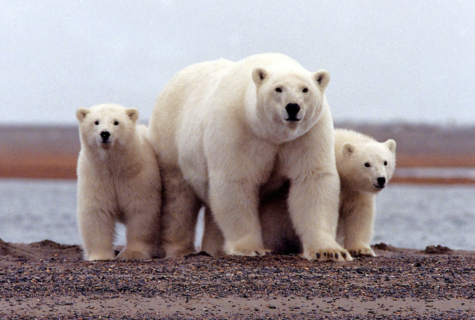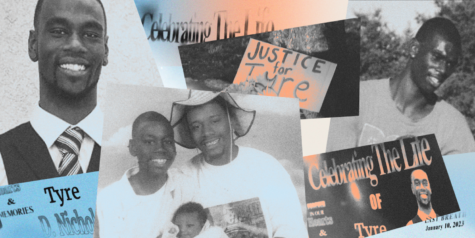A Genocide No One Knows About
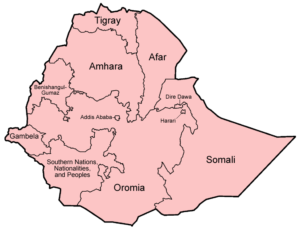
Ethiopia is an African country spanning around 1,100,000 square kilometers, with 5 parliamentary parties, 17 national parties, and 15 regional parties. Ethiopia also has many ethnic groups, though the majority of the population is in three: Tigray, Amhara, and Ormos. Amaharans and Tigrayans in particular have a generations-long feud. The current Prime Minister of Ethiopia is Abiy Ahmed, who in 2019 won a Nobel peace prize for his work in ending a 20-year conflict post-war with Ethiopia and the neighboring nation Eritrea. When the pandemic hit in March 2020, the Prime Minister postponed the election that was set for August 2021, claiming it was due to the COVID-19 restrictions. The local Tigrayan government called this move unconstitutional and claimed Ahmed was trying to extend his mandate and held local elections anyway, to which the Prime Minister responded by cutting funding to the Tigray region. In response, the Tigray People’s Liberation Front, a local political party, attacked the federal command headquarters in the Tigrayan capital of Mekelle. Eritrea also joined in on the conflict due to the long-standing border conflicts with Tigray. After the attack on the city of Mekelle, the Ethiopian and Eritrean forces began their genocide.
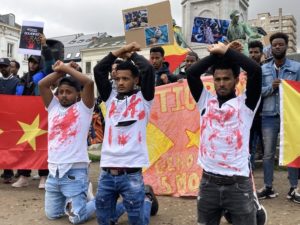
Oxford Language defines genocide as “the deliberate killing of a large number of people from a particular nation or ethnic group with the aim of destroying that nation or group,” which is what’s happening in Ethiopia right now. On November 3rd, what is known as the “Tigray War”’ began and has become a deadly ethnic war that has barely been talked about despite the very high civilian casualties. On November 28th and 29th, more than 800 civilians were massacred in Aksum, Tigray. At the beginning of the war, a Tigrayan youth group called “Samri” executed 600 to 1500 Amharans in Mai-Kadra. The war is a continued escalation of exchanging blows, a lot of it being fueled by both the Prime Minister and Eritrea, as well as long-standing ethnic tensions within Ethiopia. Refugee camps have been raided and looted, sexual violence has become a common and almost daily occurrence, and massacres have become regular, causing many refugees to flee to Sudan. The United Nations has called it the “worst exodus of refugees from Ethiopia seen in two decades.” Tigray is also caught up in what is described as a “man-made famine” by United Nations aid chief, Martin Griffiths. This is because the Eritrean and Ethiopian governments have continuously blocked aid from bringing food into Tigray and will usually slaughter and burn any cattle or livestock or crops that are found in the towns they massacre. Tigrayans have also become targets within the entire country, as well as in other places where there is a large population of Ethiopians. This violence and hate have spread throughout the entire world, and anyone who isn’t personally familiar with the Tigray War hasn’t even noticed. It has even spread to Washington state as well as within Shorecrest.
Shorecrest junior Hermela Wolu is originally from Ethiopia, with their father from Tigray and their mother from Amhara. The war in Tigray has affected them directly since many of their family is still in Tigray. “The first year of this war, the whole house was tense for months because we were unsure what was happening to our family. And to see the same fight back in Ethiopia happen here at school is just awful,” Hermela said, referring to the increased tensions that have formed within Ethiopian communities in Washington, as well as in Shorecrest. “I mean even in school there’s constantly groups of Amhara kids starting problems with my other cousins simply because of where they’re from.” Hermela even shares about how their older cousin’s friends, who were all Amharan, started harassing their cousin, who is from Tigray. “She had to have security in school because her ‘friends’ tried to hit her with a car.” The feud between Amhara and Tigray continued to stretch as the war went on, making many students from Tigray like Hermela feel unsafe. “But this feud is continuing to divide people in the worst ways. For myself, it divides me from other students because I don’t really know many people who are from Tigray at school— especially in my grade.” Hermela also talks about the lack of understanding from other students who are not Amhara or Tigrayan, noting that “Many people seem to think that the conflict doesn’t make any sense because it’s like ‘you’re all from the same place’ and while that may be true, the issue lies in ethnicity.”
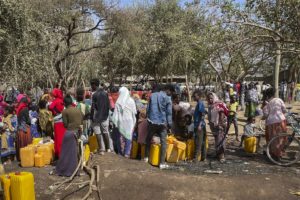
So why is there this lack of understanding and media coverage of the Tigray war and genocide? Right before the fighting began, the Prime Minister cut off internet access to most of Ethiopia, isolating Tigray and not allowing much media attention around the subject of the many war crimes that are being committed in the region. Although, in a press conference on April 13, 2022, WHO director-general Tedros Adhanom Ghebreyesus, who is also Tigrayan, said, “I don’t know if the world really gives equal attention to black and white lives…I need to be blunt and honest that the world is not treating the human race the same way. Some are more equal than others.” Here Ghebreyeus references the large media coverage of similar events, such as Ukraine and the Bosnian genocide, that have received in comparison to the coverage Tigray has gotten. It is also important to note that Ethiopia and Tigray are largely unknown regions to many Americans, so it can be difficult to understand the complications and nuances of the conflict. There is also a stigma, as a result of this ignorance, that areas in these regions are always at war, like Pakistan and Israel, as well as the many wars the U.S. has started and fought in the African and West Asian regions. However, this is not a fair or justifiable reason to continue to stay in ignorance over these atrocities. The job of a reporter is to report, not to cherry-pick which lives deserve more attention over others. Ethiopia and its people need us to listen: they should not have to suffer in silence.
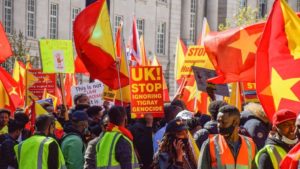
The Tigray War supposedly came to an end on November 3rd, 2022 with the signing of a peace agreement between Ethiopia’s government and Tigrayan rebels. However, recent news on the continued Ethiopian conflict is that ethnic violence continues across Ethiopia. On January 26th, 2023, violence erupted in the town of Jewuha when Oromo Liberation Army attacked an Amharan special forces camp, and Eritrean forces continued to stay in major Tigrayan cities until January 22nd, 2023, almost two months after the peace treaty was signed. Ghent University calculates the total casualties to be anywhere from 385,000 to 600,000. Hate speeches have also been raking across the country, furthering tensions, some even spoken by the Prime Minister himself—a man who earned a Nobel Peace Prize, but also actively uses siege tactics that can only be described by Ghent University as “a blockade on humanitarian aid, trade, transport, banking, electricity and telecommunications in Tigray, which amounts to the crime of using starvation as a method of warfare.” Tigray, Amhara, and the millions who have been massacred and killed during this conflict deserve to be remembered, and the ones who live deserve to be helped and listened to. While events like these are not new to the world, it is still important to know of them and spread awareness of these atrocities. The more people who know, the more people who are willing to do something about it. Silence equals death.
Author’s Note:
I am not personally affected by the Tigray War since none of my family is from Ethiopia. However, I am friends with Hermela Wolu and am a decent person with empathy. I did a fair amount of research which included talking to Hermela on the subject and reading many articles. I tried to speak on this conflict with as much truth as possible, but once again, I am not personally affected. If you personally know of anything I got wrong, or anything I misrepresented, please please say so. It is not my purpose to spread misinformation.
Sources and Further Reading:
https://en.wikipedia.org/wiki/Tigray_War
https://www.thenation.com/article/world/genocide-in-tigray/
https://en.wikipedia.org/wiki/Abiy_Ahmed
https://www.cnn.com/2021/11/03/africa/ethiopia-tigray-explainer-2-intl/index.html
https://www.trtworld.com/africa/dozens-killed-in-latest-ethnic-clashes-in-ethiopia-witnesses-64883
Fundraisers and Charities:



